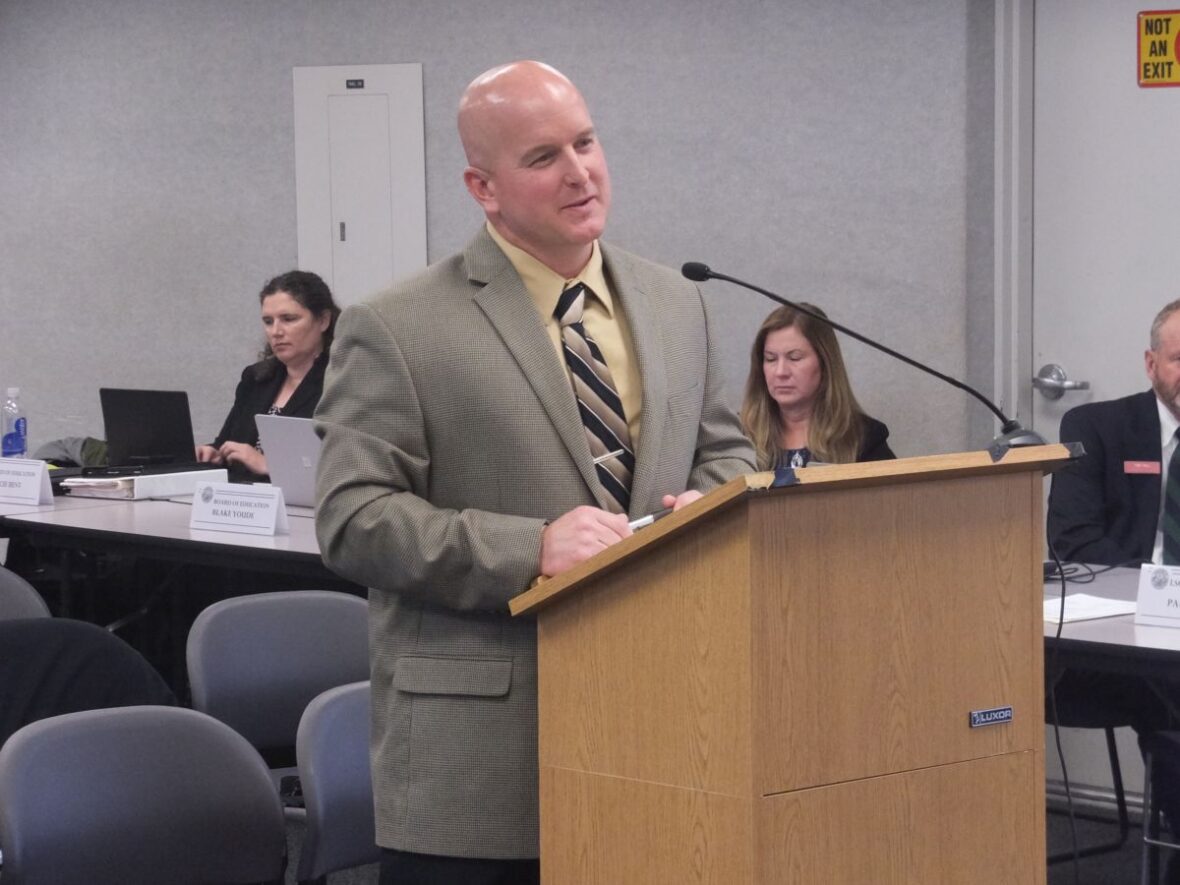POST FALLS — Wallace Superintendent Bob Ranells didn’t mince words when lawmakers asked him to describe what is working with Idaho’s school funding formula.
“I’m not sure I would say anything is working,” Ranells said. “We’re still battling to get back to ’08 funding levels. My gosh, inflation has been rampant since 2008.”
Ranells’ comment — and his lengthy follow-up explanation — underscores just how hard a task the Legislature’s Public School Funding Formula Interim Committee faces.
The 11-member committee met for nearly eight hours Monday in Post Falls. Although school officials and lawmakers described the meeting as eye-opening and productive, the group didn’t move much closer to rewriting the state’s 22-year-old funding formula.
As expected, the group plans to be deliberative and take its time offering up school funding recommendations — a task that will continue well into 2017.
Much of the day’s discussion could be boiled down to two big-picture questions:
- What is the responsibility of the state of Idaho vs. local taxpayers when it comes to funding public schools?
- Is the current school funding formula not working, or is it just underfunded?
The best-received portion of the meeting came when co-chairwoman Wendy Horman, R-Idaho Falls, broke the committee and an audience of 17 school administrators into four small groups.
In that setting, school superintendents, trustees and business managers from Wallace, Coeur d’Alene, Lake Pend Orielle, West Bonner County, Lakeland, Kellogg and other districts shared with lawmakers their perspective on school funding.
These issues came up:
- Due to earmarks in the school budget known as line items, there is not enough flexibility with how districts can spend their funding.
- Health care costs continue to increase at unpredictable rates, and funding hasn’t kept up.
- Districts struggle to come up with funding for classified employees that are part of a school’s non-teaching staff.
- The increase in teacher pay through the career ladder salary law has succeeded in raising beginning teacher salaries, but districts struggle to pay for veteran teachers who earn more than the state pays school districts for salaries.
- New initiatives in education sometimes yield unintended consequences — such as the need to hire additional staff or counselors — especially for smaller, isolated districts.
“I wasn’t surprised to hear anything that was brought up or discussed,” associate deputy superintendent of public school finance Tim Hill said.
Nevertheless, educators were happy to find a receptive audience.
“Thank you for taking the time to fly out, meet face-to-face and talk to us individually,” Lakeland Superintendent Becky Meyer said.

Along with the list of concerns, school administrators offered up a few suggestions as well.
As others have in the past, West Bonner County Superintendent Paul Anselmo proposed the committee consider switching from an attendance-based funding model to an enrollment-based one.
Anselmo said the current attendance model can penalize districts if attendance doesn’t pan out or if students leave during the middle of the school year.
“We have to plan like every kid will be there and we have to hire our teachers like every kid will be here, not just a percentage,” Anselmo said.
Horman said it could cost up to $71 million just to switch to an enrollment model.
“So we have to decide if that is where we want to invest our money,” Horman said.
Several other school officials proposed creating a stable, local funding source for schools that would not require approval by voters.
Other administrators called for consolidating the number of earmarks in the public school budget to maximize funding flexibility.
“This has been one of the best hours the committee has spent together (because we were able to have) those conversations with folks in the local school districts facing those issues daily,” Horman said.
In addition to the regular committee members, Rep. Ryan Kerby, R-New Plymouth and Sen. Bob Nonini, R-Coeur d’Alene attended the meeting.
House Speaker Scott Bedke, R-Oakley, was the only lawmaker on the committee not in attendance. Chief Deputy Superintendent of Public Instruction Pete Koehler attended the meeting instead of Superintendent of Public Instruction Sherri Ybarra, who is one of two non-legislative committee members.
After the meeting, Koehler said his biggest takeaway message was the expression of “very blunt and honest concerns by smaller, rural districts on the challenges that the funding formula — as it presently exists — presents.”
The committee is scheduled to meet again on Dec. 13 in Boise.
